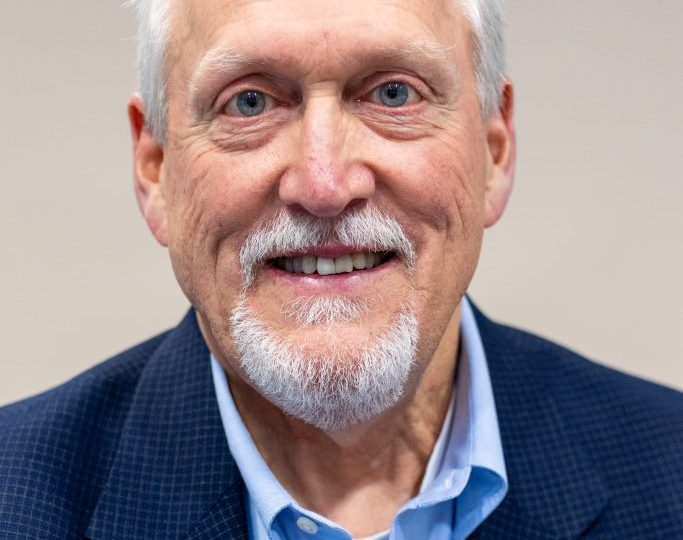By GEORGE BEAUREGARD
During my years in a bustling metropolitan primary care practice from 1992 to 2010, I recall only a handful of patients under 50 who developed cancer. Not surprisingly, these were mostly cases of Hodgkin’s and Non-Hodgkin’s lymphomas, myeloma, skin, and breast cancer. Fortunately, those few patients were wearing the mantle of cancer survivor by the time I left clinical practice.
Since 2010, I’ve transitioned into physician executive roles across various U.S. markets, overseeing large physician networks and other health systems, including so-called Accountable Care Organizations (ACOs) that oversee the care of tens of thousands of attributed patients. My goal has been to help transform healthcare delivery to focus on consistently delivering high-value care–defined as being of high quality and cost effective. My engagement with cancer has mainly been through monitoring how our organization performs on established cancer screening measures for breast, colon, and cervical cancers, based on HEDIS guidelines for age ranges.
During those two periods, my life took two profound turns. The first occurred in October 2005 when I was diagnosed at 49 with advanced-stage bladder cancer. The second, more devastating one, occurred on September 16, 2017, when my previously healthy 29-year-old son was unexpectedly diagnosed with stage 4 colon cancer. That shocking news came a month after his wedding. While I knew the grim 5-year relative survival rate for this stage was about 13 percent, I still hoped and prayed that he would somehow end up being on the positive side of that survival statistic.
Throughout his three-year treatment at Dana Farber Cancer Institute (DFCI), in Boston, my son, while courageously fighting his battle—one he would eventually lose at 32—became a passionate advocate for raising early-onset colorectal cancer (CRC) awareness and the need for increased research funding. He played an important role in helping to launch DFCI’s Young Onset Colorectal Cancer Center, which has since treated over 1,500 patients. Many of those individuals are between the ages of 20 and 40. Six months before his death, my son made a memorable appearance on The Today Show.
Fatherhood and medicine are deeply ingrained in my identity. After the initial shock of my son’s diagnosis, I delved into medical and scientific literature, seeking all relevant information. What I’ve discovered, and continue to learn, is that there’s been a global surge in early-onset cancers, defined as occurring in people under the age of 50. Between 1990 and 2019, early-onset cancer cases globally surged by nearly 80 percent, with related deaths increasing by around 30 percent. In the U.S., projections suggest that by 2030, one-third of colorectal cancer cases will be in individuals under 50. It’s already the leading cause of cancer deaths in men younger than 50. In women, it now trails only breast cancer.
Since 2021, screening ages have been lowered; colon cancer screening now starts at 45 and breast cancer at 40 for average-risk individuals. Yet, given the trends, these starting ages might still be too high.
The alarming early-onset cancer trend has led me to expand my work focus beyond improving screening rates, which remain significantly below national targets. Now, I am also concerned with addressing undiagnosed early-onset cancers that could become lethal if not caught early.
It’s been well established that early detection of precursors to cancer and lower-stage disease improves outcomes.
Enter the promise of emerging blood-based cancer tests, so-called liquid biopsies, that detect DNA fragment modifications, genomic alterations, aberrant methylation and certain biomarkers circulating in the bloodstream from cancer cells and tumors. Recently, the FDA approved Guardant’s SHIELD test, a blood-based screening test for colorectal cancer. Building on the promising results of the U.K.-based PATHFINDER study, which used the commercially available (but not yet FDA approved) GRAIL Galleri test capable of detecting 50 types of cancer, a large-scale prospective trial involving 140,000 participants is underway in the U.K.; the results are expected in 2026. The trial’s primary endpoint is an absolute reduction of late-stage (stage 3 and 4) cancers diagnosed. Cancer-specific mortality will be analyzed after five years of surveillance. If the trial results are positive, the U.K.’s National Health Service intends to proceed with a large-scale pilot program involving the test’s use in clinical practice.
People diagnosed with cancer obviously above all want to be cured. When that’s not possible, detecting cancers at an earlier stage (the so-called “stage shift”) can still offer such quality-of-life benefits as giving afflicted people a chance to witness their children graduate from high school or college, to attend their weddings, to be present for the birth of their children, to a hold their grandchildren for the first time and other memorable life events. There are no ways to measure economically those occasions.
Among the five cancers with established evidence-based screening methods, screening rates fall short of national targets. Numerous factors contribute to this disparity, including limited access to healthcare providers, socioeconomic factors, insufficient knowledge about the occurrence and spread of specific cancers, the significance of screening in early cancer detection, and the preference for less invasive techniques. Additionally, for many cancer types, no screening tests are available.
Innovative screening solutions are emerging, such as the blood-based single or multi-cancer early detection tests and multi-target stool DNA tests.
Two of these have received FDA approval: GUARDANT’s Shield test–which has a 83 percent sensitivity and 90 percent specificity, and, Exact Sciences Cologuard Plus, urine- and breath-based tests have also been developed and are being investigated.
Despite the increasing attention to early-onset cancers, public awareness remains limited. As awareness increases, clinicians—particularly community-based primary care providers—will undoubtedly encounter questions about abnormal early detection test results and whether patients should be tested in this manner. (I’m curious about how many of the 38.5 million people who watched the Thanksgiving Day NFL game between the Giants and the Cowboys on Fox noticed the mention and the conversation regarding the GRAIL Galleri test.)
Early detection tests hold promise for addressing lagging screening rates, particularly in people who decline a stool-based test or a colonoscopy; socioeconomically disadvantaged populations that lack access to medical care will likely benefit as well. Democratizing screening not only broadens access to potentially life-saving diagnostics but fosters greater health equity, ensuring that all individuals, regardless of their economic status or location, have the opportunity for early intervention and improved cancer outcomes.
Despite recognition that these tests might be a promising complementary option for CRC screening, some researchers strongly advocate that large randomized clinical trials should be done before FDA approval and clinical use, to ensure a favorable risk-benefit balance. While this viewpoint is valid, those trials would take years to provide reliable outcomes. Meanwhile, the global surge in early-onset cancers—hitting people under 50, often without symptoms—is putting immense pressure on healthcare providers, particularly oncologists. And the undeniable current realities are that cancer screening rates remain below national goals, and early-onset cancer rates continue to rise, leading to significant suffering and avoidable deaths. So, sticking strictly to decades old scientific-research orthodoxies isn’t the right approach.
For decades, physicians have relied on randomized controlled trials to advance medical knowledge. Additionally, it’s well-known that doctors often take years to adjust care decisions based on trial results. This creates a dilemma: should they stick to conventional science or tackle emerging threats? Inaction isn’t an option.
The increasing incidence of sporadic early-onset cancers makes a case for urgency. Yet, the thorough studies necessary for decisive data might take years. For a long time, doctors have relied on established screening methods, but developing these new tests might transform early cancer detection and treatment strategies.
For me and some of my colleagues, the call to action is evident: Pushing forward with advanced screening technologies can significantly affect early intervention and patient outcomes, even though typical clinical validation processes are lengthy.
Adopting a dependable blood-based test could increase screening rates and improve accessibility for underserved populations. However, both doctors and patients must recognize that these new tests might be slightly less statistically effective than colonoscopy, possibly leading to unnecessary tests, increased anxiety, and false assurances of being disease-free, thus avoiding established screening methods. An abnormal result of a non-invasive test would necessitate a follow up colonoscopy. Discussions about this require a shared decision-making process.
I write this knowing that these emerging cancer screening methods wouldn’t have helped my son, as there is no family history of CRC and the fact that he was a very health-conscious, fit and asymptomatic young man before his diagnosis. My hope is that people with signs common in the development of CRC—rectal bleeding, diarrhea, iron-deficiency anemia, and abdominal pain–don’t dismiss them. They need to seek medical attention. My other hope is that physicians think twice before dismissing those signs in younger patients as being “nothing to worry about”.
Whether these tests will fundamentally transform cancer screening and care is still uncertain. Though not as dire as choosing between Scylla and Charybdis, frontline primary care physicians face the challenge of deciding whether to follow established evidence or to take on the complex task of understanding these new developments and taking proactive measures.
The well-being of many individuals will hinge on the response of the medical community.
George Beauregard, DO is an Internal Medicine physician whose experience includes 20+ years of clinical practice as well as leading organizations strategic and clinical initiatives
Leave a comment




